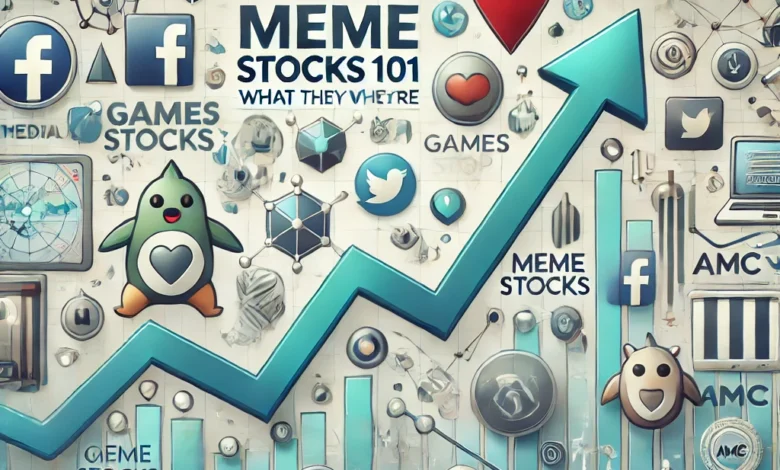Meme Stocks 101: What They Are and Whether They’re a Smart Investment

What Is a Meme Stock?
Keywords: meme stock, social media stocks, GameStop, AMC, short squeeze, retail investors, stock market trends
Key Takeaways
- Meme stocks gain popularity through online communities promoting certain stocks.
- The concept of meme stocks became prominent in 2020, largely through Reddit’s r/wallstreetbets subreddit.
- GameStop (GME) is widely considered the first meme stock, rising by 100 times within months due to a short squeeze.
- Meme stocks bring unique slang and terminology into online financial communities.
- These stocks are prone to high volatility driven by viral social media activity.
Understanding Meme Stocks
Memes, defined as ideas or cultural elements that spread rapidly online, have paved the way for viral trends in investing. As the internet and social media grew, so did communities dedicated to discussing and promoting stocks. Meme stocks didn’t truly emerge until 2020, with the rise of the r/wallstreetbets subreddit, known for its bold and unconventional tone.
Unlike fraudulent pump-and-dump schemes, meme stock communities promote stocks by encouraging members to buy and hold even during price spikes. These independent actions can unintentionally drive prices up, sometimes leading to short squeezes on heavily shorted stocks.
GameStop: The First Meme Stock
In August 2020, YouTuber “Roaring Kitty” (real name Keith Gill) posted a video detailing why shares of GameStop Corp. (GME) could surge from $5 to $50 per share. He explained that the stock had high short interest, largely held by hedge funds, which could lead to a massive short squeeze.
Shortly after, Chewy.com’s former CEO Ryan Cohen purchased GME shares, and by November, Cohen owned a 10% stake in the company. As Cohen joined GameStop’s board in January 2021, the stock price skyrocketed, peaking at nearly $500 amid short covering and panic buying. The short squeeze resulted in significant losses for several hedge funds, giving the meme stock phenomenon a David vs. Goliath appeal.
GME Is Squeezed Again
After the initial surge, GameStop shares gradually declined, settling just above $10 by early 2024. However, in May 2024, the stock witnessed a sudden resurgence when Keith Gill (Roaring Kitty) returned to social media, posting cryptic messages and video memes that reignited interest in meme stocks. As a result, GME shares jumped by nearly 100% in mid-May, catching short sellers off guard and causing estimated losses of over $1.3 billion.
This meme stock revival also affected other companies like AMC Entertainment, whose shares rose 120%, allowing the company to raise approximately $250 million. Observers noted parallels to the 2021 meme stock frenzy, though opinions varied on whether this resurgence would have a lasting impact.
The Rise of Meme Stock Investing
The popularity of meme stocks was partly fueled by the COVID-19 lockdowns and the rise of zero-commission trading platforms like Robinhood. During the initial meme stock craze, Robinhood experienced unprecedented trading volumes, leading to trade delays, outages, and platform crashes. These issues resulted in regulatory scrutiny, user outrage, and class-action lawsuits against the company.
Other Notable Meme Stocks
GameStop may have been the first successful meme stock, but other companies soon followed. Reddit users quickly identified struggling stocks with high short interest, such as AMC Entertainment Holdings Inc. (AMC) and Blackberry Limited (BB), leading to massive increases in their share prices as well.




